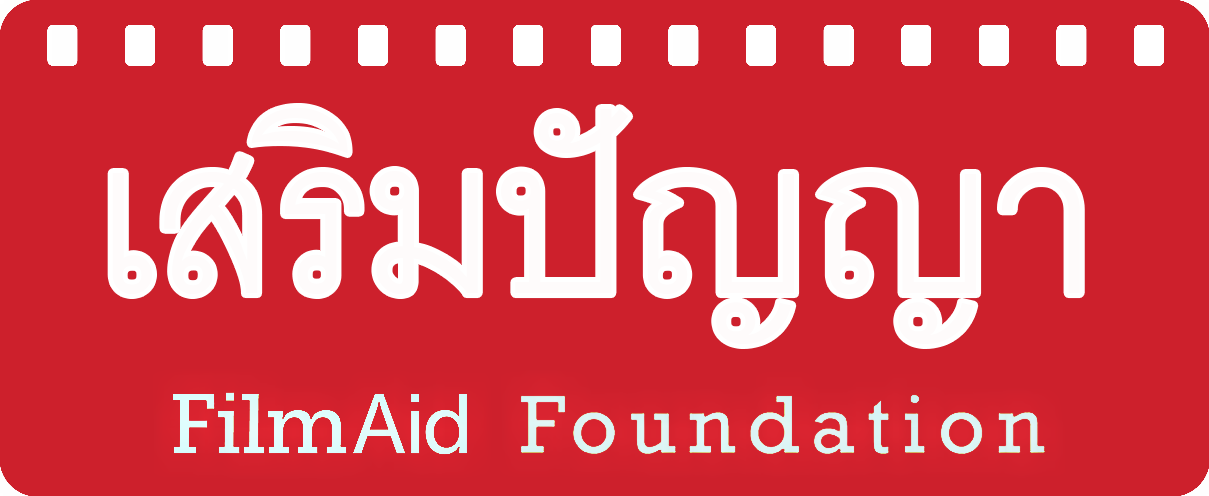ABOUT
Our Sermpanya Foundation in Thailand supports community activities at the grassroots level, running mobile cinema screenings, media skills-training and the production of educational and awareness raising films to benefit the lives of thousands of refugees, migrants and local villagers living in camps and communities along the Thai-Myanmar border. Through our Sermpanya Foundation, we use the power of film to bring non-formal education, information and inspiration to thousands of vulnerable people, raising awareness, changing lives and projecting hope for a better future.
FilmAid Asia supported the refugee camps for over eight years providing education, information, media skills training and psycho-social relief to thousands through the production and dissemination of films in local languages. From July 2019, FilmAid Asia de-registered and all operations have passed to our Sermpanya Foundation, registered as an official non profit foundation in Thailand, which will continue our dedicated support for the refugees, migrant and host communities. In Thai the word Sermpanya translates as ‘Sharing Wisdom’ or ‘Encouraging Knowledge’.
Watch our Promo below to see more…
BACKGROUND
In response to one of the most protracted refugee situations in the world, FilmAid Asia was founded in 2011 and registered as a non-profit humanitarian organisation in Hong Kong to benefit the lives of over 150,000 refugees living in 9 refugee camps on the Thai Myanmar border.
Decades of conflict led by a brutal military regime in Myanmar, forced hundreds of thousands of ethnic nationals to flee their homes and seek refuge in neighbouring Thailand.
A new ‘democratic’ NLD government was elected in 2015 in Myanmar and peace agreements were signed by different ethnic states. Hopes for a safe and dignified return were raised. However ongoing conflict, repression, land confiscation and extreme human rights abuses still continued in many regions of Myanmar making it an ongoing challenge for refugees to find a successful way to return and rebuild their lives.
Nine refugee camps run along the length of the Thai Myanmar border, providing shelter for over 30 years to over 150,000 refugees. These camps are located across the border from conflict areas and provide a home to the many ethnic groups from Karen State, Karenni State, Kachin State, Shan State, Chin State, Mon State, Rakhine State (Rohingya) and Myanmar nationals. Many families and students who were forced to leave their homes to seek safety from the Burmese Army (Tatmadaw) during the previous years of military repression in the heart of the country, still live in the camps today.
According to UNHCR verified registration figures in April 2021, 91,795 refugees remain in the nine camps as the community face the new political situation in their home country, with hopes of a dignified and safe return home dashed by the military coup on 1st February 2021. In addition to this, the more transmissable Delta variant of Covid-19 is spreading fast in the region and has now reached the camps and put residents into lockdown. Humanitarian supports continue to be provided by international local NGOs (Non Governmental Organisations) and by CBOs (Community Based Organisations) but limited access, cuts to funding and the situation in Myanmar are leading to increased mental health issues for the refugee community.
In the ethnic states along the border, new temporary ceasefires, which were agreed between the KNU (Karen National Union) and Tatmadaw (the Burmese Army) after a series of aeriel attacks forced many villagers to flee their homes in Karen and Karenni States, have just come to an end and there are renewed security concerns for those thousands who have been displaced by the ongoing situation. The rainy season also started early this year and the rain has been exceptionally heavy on the border region causing flooding and mudslides as well as creating perfect conditions for outbreaks of malaria and dengue. This alongside the Delta variant which is spreading fast among communities with an increasing fragile health system in Myanmar.
The situation is an evolving one and all humanitarian agencies along the border are preparing for the possible influx of refugees as well as supporting the existing refugees and migrants.
Here at Sermpanya Foundation - our team are making video and other materials to support the displaced communities and are on standby to mobilise our mobile cinema to meet the needs of the emergency response providing communication, essential knowledge and psycho-social relief.
““… a community spirit flourishes where thousands assemble to watch a film” ”
FOR MORE BACKGROUND INFORMATION
For maps and more information into the history of the camps please go to the The Border Consortium resource website at https://www.theborderconsortium.org/resources/


